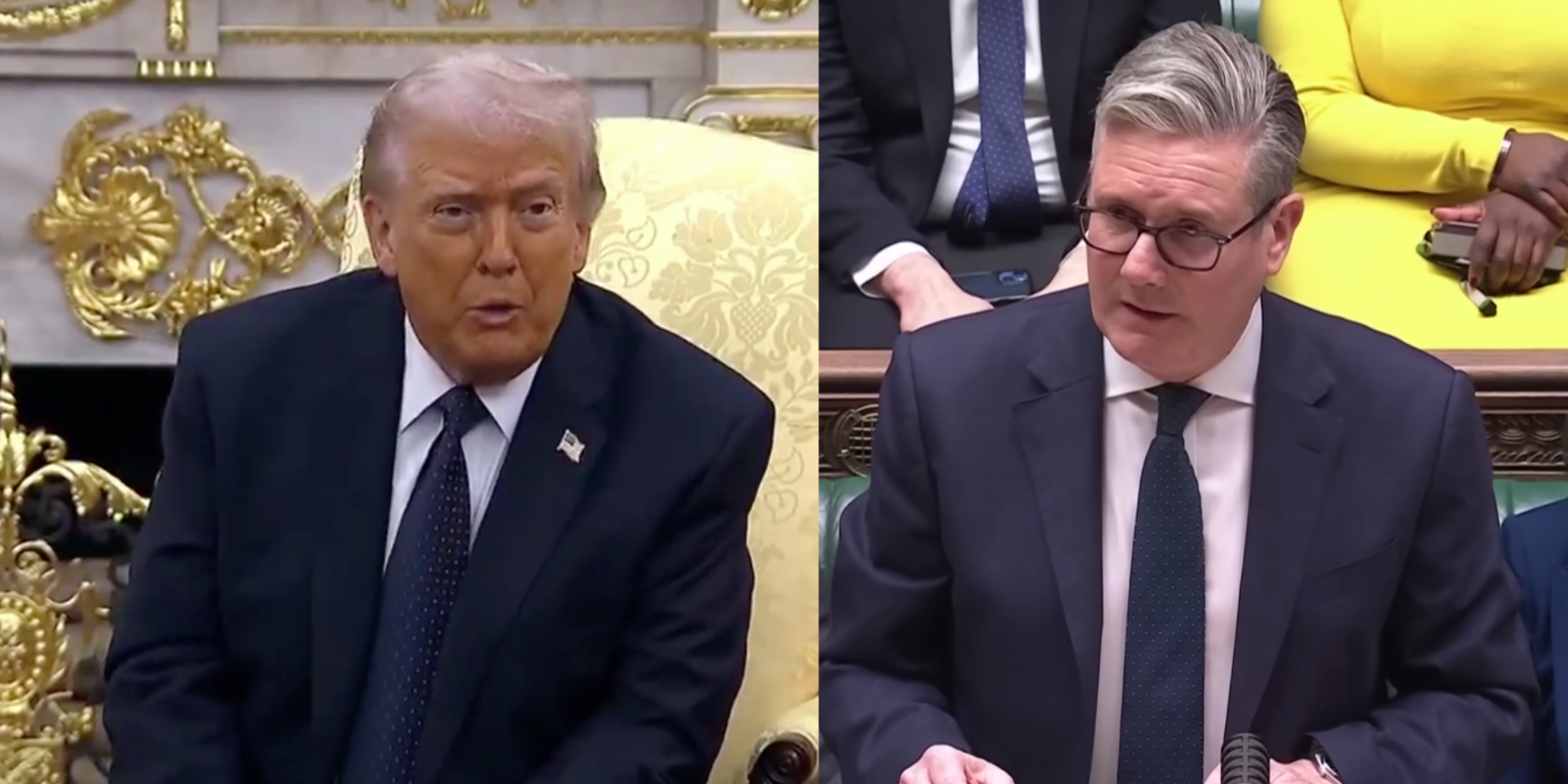Vox co-founder Matthew Yglesias’s new book One Billion Americans: The Case for Thinking Bigger has been making waves the past few weeks, attracting no small amount of controversy. The proposal is in the title; Yglesias argues that, for the United States to maintain its position as “number one,” and regain a sense of common purpose, it should aim to have a population of one billion by the year 2100.
The idea of one billion Americans is not nearly as radical as Yglesias believes.
Though the idea has enjoyed a mixed reception, to say the least, there is consensus that Yglesias has offered a novel solution to pressing contemporary problems—a view that Yglesias himself has sought to cultivate. Yet nothing could be further from the truth. The idea of one billion Americans is not nearly as radical as Yglesias believes. In fact, it’s the logical endgame of center-left politics, a politics motivated by abstract ideas of “progress” without proper regard for local culture, community, and soul.
His arguments have all been made before: unfettered immigration for economic advancement, with the perfunctory label of “racist” applied to those who oppose it; imperialism but with a “progressive” face; solving climate change through massive government spending; enlarging the tax base to justify further bureaucratic expansion, etc. These are the exact policy proposals you’d expect from a cosmopolitan elite utterly divorced from the lived experience of flyover America.
It’s this mind-numbing predictability that makes Yglesias so interesting. He’s a product of his time, a genuinely intelligent and creative person incapable of deviating from the paradigm in which he is submerged. His thinking, and One Billion Americans in particular, are a succinct summation of the American center-left and its intellectual stagnation taken to its conclusion—Yglesias merely puts it writing.
[caption id="attachment_183480" align="aligncenter" width="1920"] Matthew Yglesias.[/caption]
Matthew Yglesias.[/caption]
OBEDIENCE TO THE PARTY LINE
Yglesias’s deference to contemporary, Democratic orthodoxy can’t be overstated. In an interview with The American Enterprise Institute in which he discusses his proposal for “one billion Americans,” Yglesias claims to be a “big fan of Max Weber.” From there, you can infer much of Yglesias’s political philosophy as it pertains to the present.
Center-left scientific social management, expansive bureaucratic structures, welfare economics (qua a managed economy), all updated with the requisite ‘Woke piety’ and fashionable post-Marxist Left-capitalism. We’ve seen this movie before. When considered in conjunction with Yglesias’s support for military intervention and democracy-spreading foreign policy, the stereotype is only strengthened.
To his credit, Yglesias is sincere. He’s astute and honest enough to recognize the very real lack of social adhesives or common telos in American society. In fact, this is the affliction to which his book is the purported remedy, the loss of a “shared sense of purpose,” and the resulting decline of American influence on the world stage. Yglesias writes:
Disagreement and debate are vital in a free society. But it’s also useful at times to have common goals—settle the West, beat the Nazis, win the Cold War—that structure the disagreements … think of how much healthier our politics would be if there were really a debate about how to accomplish great things rather than a food fight over semi-imagined offenses to “real Americans” that serves as a mask for an endless procession of tax cuts for the rich. Why not make America greater than ever instead?
It’s telling, however, that for Yglesias, this “shared purpose” always seems to be found in international antagonisms, as evidenced by Yglesias’s reference to the Cold War and the fight against the Nazis as exemplars of the common goals Americans once shared. Like many on the center-left, he can only conceive of America and Americanness geopolitically, defined by its oppositions, its national character revealed only through its relation to other countries. In this worldview, America is inherently a superpower, and the qualities that make America America are derived from America’s position on the world stage and its influence within the global order. “America should try to stay number one,” Yglesias contends, and grounds his prescriptive arguments around achieving this end.
As he believes our global influence is predicated on a large population and economic strength, Yglesias argues that we should enact policies aimed at increasing both. It’s important to note that the richness and strength of a country for Yglesias is understood in purely empirical, statistical terms; concepts like “GDP” make Yglesias salivate; ‘one billion Americans’ is so appealing because it’s quantifiable, a “big, round, number,” as he himself points out with only a little self-awareness. With such a quantitative, scientistic bias, it follows that mass immigration, coupled with a managed economy to direct government investment and broaden welfare programs, is just what the doctor ordered.
He makes the same tired pitch: immigration is necessary for an aging welfare state that requires a young and enlarged tax base.
This brand of thinking is typical of the post-Clinton center-left, with their embrace of quasi-neoliberal economics and global free trade, mediated by government regulation, all masked by a veneer of commitment to the working class. Domestic policies regarding industry and commerce tend to prioritize GDP, stock indices, and currency strength, while foreign policy favors foreign entanglements, both military and economic. Humans, meanwhile, are viewed as fungible economic agents, and if their community is robbed of its industrial base, they’re free to just move. Purpose, autonomy, cultural commitment, and so on, are all reconciled with cheap consumer goods manufactured by outsourced labor and a subsistence wage subsidized by the State. Yglesias simply takes this political tradition a step further.
As expected, central to his proposal is a dramatic increase in immigration, and the arguments used are identical to center-left arguments we’ve all heard before, just ratcheted up a notch or two. He makes the same tired pitch: immigration is necessary for an aging welfare state that requires a young and enlarged tax base. Immigrants bring valuable skills, Yglesias argues, enriching the economy for all of us—and he takes care to sprinkle in enough Woke virtue to conveniently castigate as racist any cultural or social critique of his proposal. (That immigration also serves as a source of cheap labor and Democrat votes is, naturally, overlooked.)
This is where Yglesias is at his most convincing, and, coincidentally, the most in line with the center-left platform. If the above premises are true, why not one billion? If global influence is indeed the priority, and global influence is dependent on a large population, why not maximize the population? It’s hard to think of a convincing counter-argument originating from the center-left or even center-right camps, presumably Yglesias’s target audience. After all, the center-left has already made Yglesias’s case, only at a different scale: Joe Biden’s immigration proposal uses Yglesias’s premises, but stops just short of his conclusion.
But if Yglesias is sincere in his commitment to a “shared sense of purpose,” his arguments are considerably less convincing.
[caption id="attachment_183479" align="aligncenter" width="1920"] Suburbs.[/caption]
Suburbs.[/caption]
COSMOPOLITAN CONTEMPT
Yglesias’s claim as to why the common goal of one billion Americans will unite the country can be reduced to the fact that “one billion Americans” is, well, a goal. It has less to do with the content of the goal and more to do with the goal’s status as a goal. Even if one were to concede that Yglesias’s proposal would enrich the country and maintain America’s position as global hegemon, it’s hard to see how this would be enough to inspire the current population to alter their culture and local environment in drastic and unimaginable ways.
To the center-left, cultural concerns are ancillary to economic ones, and if we’re all a little richer, everything’s fine.
After all, a sudden and immense influx of immigrants into America’s small towns and suburbs would necessarily reshape the American social fabric. Regional mores and customs would quickly fade, values would be contested, routines disrupted, and so on. Local identity would be challenged; social capital and trust, established through generations of shared experience, would be greatly weakened. One’s connection to their place of origin, and sense of membership within their unique milieu, would be attenuated through the mass homogenization of the country.
These consequences have always followed great migrations, but would be amplified considerably under Yglesias’s proposal. Yglesias even acknowledges this, but more or less hand-waves away such fears as “racial,” not cultural, as if a desire for anything beyond cosmopolitanism is inherently bigoted.
Yglesias does offer a brief consideration of the cultural concerns his proposal provokes, but with reasoning in lock-step with the center-left party line. He imagines a cultural commitment exclusive to one’s nation; a ‘strong America’ is the only social adhesive needed. He flippantly dismisses local attachments, culture, and community: such objections are vestigial and backward-thinking, and marginal increases in economic prosperity are instead viewed as a panacea.
To the center-left, cultural concerns are ancillary to economic ones, and if we’re all a little richer, everything’s fine. Family values, for instance, will be reinvigorated if we can more easily afford child care—an argument identical to that made by Barack Obama five years ago. Social cohesion can be achieved, and communities revitalized, if we only had cheap (subsidized) housing and a more vibrant local economy—the same logic employed by Hillary Clinton to support her housing platform.
The indifference with which Yglesias understands communal commitments is reflected in his tongue-in-cheek advocacy for “population-transfer schemes,” as he puts it: populating the rural and suburban regions and small towns of the United States with masses of immigrants on the basis that these regions can “fit” them. Here, he’s just ahead of the curve; recent efforts to mandate low-income housing in suburban neighborhoods aren’t quite forward-thinking enough for Yglesias.
Much of One Billion Americans follows this same pattern, continuing the line of reasoning made by established figures on the center-left, but taking these ideas to the next level. Yglesias is operating in the same old paradigm, only turning up the dial. He conceives of America according to center-left orthodoxy, as a geopolitical actor defined by its relation to the global order, and conceives of Americans as nothing more than atomized economic agents with a cultural commitment only to the nation at large.
In doing so, Yglesias is articulating the telos of center-left politics. He’s a harbinger of things to come. One Billion Americans is the logical endgame of the Democrat establishment and their brand of politics. Yglesias has merely put it in writing, tearing off the veil.
 Why Matthew Yglesias’s new book is the future for the Democratic Party.
Why Matthew Yglesias’s new book is the future for the Democratic Party.





